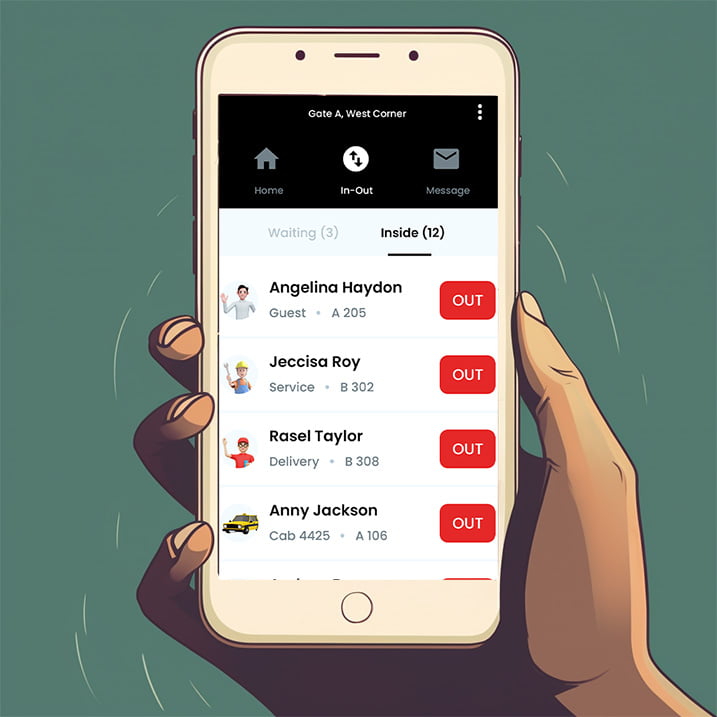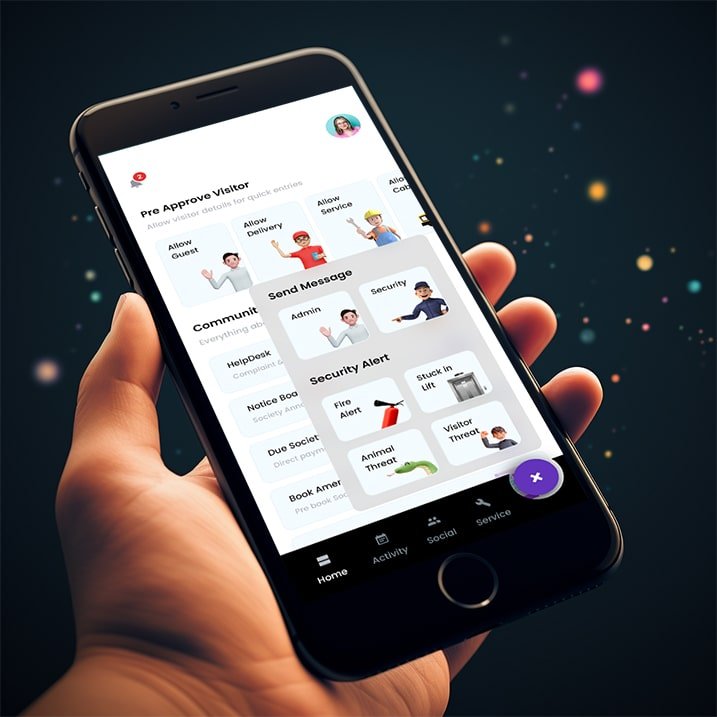Why Property Managers Should Embrace Residential Community Apps
Property management is a complex field that demands efficiency, organization, and effective communication. As technology continues to evolve, the adoption of residential community apps is becoming increasingly important for property managers. These apps offer a wide range of benefits that enhance the management of residential communities and improve the overall living experience for residents.
In this article, we will discuss why property managers should embrace residential community apps. We will dive into the advantages and transformative impact the apps can have on the industry.
The Need for Innovation in Property Management
Traditional property management processes often involve manual paperwork, in-person interactions, and phone calls. These methods are cumbersome and time-consuming. As residential communities grow larger and more complex, property managers face the challenge of managing multiple tasks, from maintenance requests and bill payments to communication with residents and security protocols. This is why residential community apps are needed to revolutionize the way property management operates.

Advantages of Residential Community Apps
1. Efficient Communication
Residential community apps provide a centralized platform for property managers to communicate with residents effortlessly. Important announcements, updates, and notices can be shared instantly. The apps can help managers to ensure that residents are well-informed about community news and events. This streamlined communication improves resident satisfaction and enhances community engagement.
2. Maintenance Management
Managing maintenance requests is a fundamental aspect of property management. Residential community apps enable residents to submit maintenance requests digitally. Property managers can efficiently track and prioritize these requests, assign tasks to maintenance teams, and monitor progress in real time. This streamlined process ensures that maintenance issues are addressed promptly.
3. Bill Payments Made Easy
Residential community apps facilitate hassle-free bill payments for residents. Whether it is monthly maintenance fees, security bills, or facility bookings, residents can make payments securely through the app. This digital payment system reduces the risk of missed payments and late fees, benefiting both residents and property managers.
4. Seamless Facility Booking
Many residential communities offer shared facilities like gyms, swimming pools, and event spaces. Residential community apps simplify the facility booking process, allowing residents to reserve these amenities at their convenience. Property managers can monitor bookings, ensure fair access, and optimize facility usage.
5. Security Enhancements
Security is always the most important concern in residential communities. Residential community apps often include security features such as access control and surveillance monitoring. Property managers and security personnel can use the app to monitor access points and respond to security incidents in real-time. This heightened security contributes to a safer living environment.
6. Community Engagement
Community engagement is vital for a vibrant residential community. Residential community apps offer features like community forums, event calendars, and social platforms that encourage residents to connect and share information. Property managers can also organize events and share updates through the app, fostering a sense of belonging among residents.
7. Informed Decision-Making
Residential community apps collect valuable data on resident behavior, preferences, and usage patterns. Property managers can analyze this data to make informed decisions about community amenities, services, and improvements. These insights help property managers tailor their services to meet the evolving needs of the community.
Choosing the Right Residential Community App
When considering a residential community app, property managers should prioritize features that align with their specific needs. Key features to look for include:
- User-friendly Interface: The app should be easy to navigate for both property managers and residents.
- Customization: The ability to customize the app to suit the unique requirements of the residential community.
- Security: Robust security features to protect resident data and ensure privacy.
- Integration: Seamless integration with existing property management systems and software.
- Customer Support: Access to responsive customer support for troubleshooting and assistance.
- Scalability: The app should be able to accommodate the growth and evolving needs of the residential community.

Conclusion
Residential community apps are not just a technological trend but a transformative tool for property management. They offer an effective solution to streamline communication and foster community engagement. By embracing these apps, property managers can elevate their efficiency and navigate the evolving landscape of property management with confidence.
In conclusion, the adoption of residential community apps is a game-changer for property management. These apps empower property managers to enhance resident experiences and stay ahead in an increasingly digitized world. As the property management industry continues to evolve, embracing the capabilities of residential community apps is not just a choice but a strategic imperative for success.